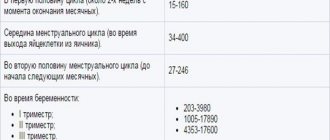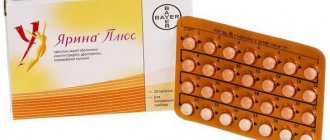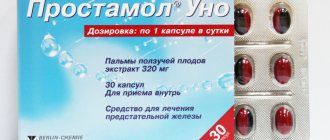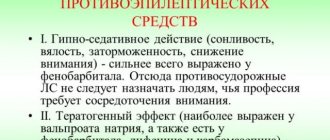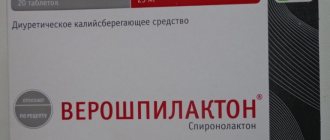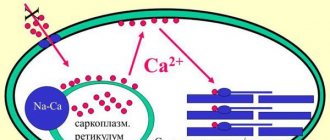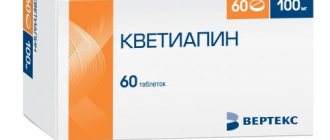Pharmacological characteristics
While exerting an antiepileptic effect, Benzonal can be said to have no hypnotic effect. The active substance increases the activity of the well-known inhibitory mediator of the central nervous system, gamma-aminobutyric acid. Additionally, it dampens the transmission of impulses from the epilepsy site, reducing the membrane permeability of nerve endings for sodium ions.
After taking the tablets orally, the desired effect develops after half an hour to an hour.
- Benzonal is a stimulator of enzymatic activation of the hepatic monooxygenase system. This property of the drug explains the possibility of its use in hyperbilirubinemia.
- Benzonal is easily absorbed from the gastrointestinal tract. Poorly binds to blood plasma proteins. Increased levels of Benzonal are noted in the liver, brain and kidneys. The active substance is able to pass histohematic barriers and penetrate into breast milk.
- The consequence of the metabolism of Benzonal is the release of an active compound that ensures the elimination of an epileptic attack. Next, the drug undergoes an oxidative process by the cytochrome P450 system. Benzonal is excreted by the kidneys, partially in an unchanged state.
pharmachologic effect
The instructions for Benzonal state that the drug produces an antiepileptic effect. Moreover, the drug has almost no hypnotic effect.
The active component enhances the inhibitory GABAergic effects on the central nervous system. It also reduces the spread of impulses from the epileptic focus, reducing the permeability of nerve fiber membranes to Na+. After oral administration, the therapeutic effect is achieved after 20-60 minutes.
Benzonal is an enzyme “inducer” that increases the activity of the liver monooxygenase enzyme system, which makes it possible to use it for hyperbilirubinemia.
The drug is quickly absorbed through the surface of the gastrointestinal tract. Binding to blood plasma proteins is weak. Elevated drug concentrations occur in the liver, brain, and kidneys. The active substance Benzonal penetrates histohematic barriers and also enters milk.
The drug is quickly metabolized by the body, and phenobarbital is released, which has a corresponding effect - eliminating epileptic seizures. The drug then goes through oxidation by the cytochrome P450 system. Drugs are eliminated through the kidneys in the form of metabolites, as well as unchanged.
Indications for use of Benzonal
Indications for the use of the drug are:
- convulsive syndrome, non-convulsive forms of seizures, epilepsy of various etiologies,
- non-convulsive, as well as polymorphic seizure states - together with diphenin, carbamazepine, hexamidine and other antiepileptic drugs,
- functional increase in bilirubin in the blood,
- hemolytic disease of infants - in combination with other drugs.
Benzonal oral tablets
Instructions for medical use of the drug
Description of pharmacological action
Strengthens inhibitory GABAergic effects in the central nervous system.
Indications for use
Convulsive forms of epilepsy of various origins (especially with cortical localization of the epileptoid focus), nonconvulsive and polymorphic seizures (in combination with other antiepileptic drugs), functional hyperbilirubinemia, incl. posthepatitis, Gilbert's disease, cholestatic form of chronic hepatitis, recurrent benign intrahepatic cholestasis, hemolytic jaundice.
Release form
Benzonal tablets 100 mg; contour packaging 10 cardboard packs 5 Benzonal tablets 100 mg; dark glass jar (jar) 50 cardboard pack 1 Benzonal tablets 100 mg; contour packaging 10 cardboard packs 5 Benzonal tablets 100 mg; polymer jar (jar) 50 cardboard pack 1 Benzonal tablets 100 mg; contour packaging 10 cardboard packs 1 Benzonal tablets 100 mg; contour packaging 10 cardboard packs 2 Benzonal tablets 100 mg; contour packaging 10 cardboard packs 5 Benzonal tablets 50 mg; contour packaging 10 cardboard packs 3 Benzonal tablets 50 mg; contour packaging 10 cardboard packs 5 Benzonal tablets 100 mg; jar (jar) 50 cardboard pack 1 Benzonal tablets 100 mg; jar (jar) 50 cardboard box (box) 50 Benzonal tablets 100 mg; polymer jar (jar) 50 cardboard box (box) 50 Benzonal tablets 100 mg; dark glass jar (jar) 50 cardboard box (box) 50 Benzonal tablets 100 mg; contour packaging 10 cardboard box (box) 600 Benzonal tablets 100 mg; contour packaging 25 cardboard packs 2 Benzonal tablets 100 mg; contour packaging 10 cardboard packs 5 Benzonal tablets 100 mg; contour packaging 50 cardboard pack 5 Benzonal tablets 100 mg; dark glass jar (jar) 50 cardboard pack 1 Benzonal tablets 100 mg; contour packaging 10 cardboard packs 1 Benzonal tablets 100 mg; contour packaging 10 cardboard packs 2 Benzonal tablets 100 mg; contour packaging 10 cardboard packs 5 Benzonal tablets 100 mg; contour packaging 10 cardboard packs 5 Benzonal tablets 100 mg; contour packaging 25 cardboard pack 2
Pharmacodynamics
Reduces epilepsy attacks. Increases the activity of the monooxygenase enzyme system of the liver, enhances the processes of acetylation and glucuronidation, accelerates the biotransformation of exo- and endogenous compounds, including bilirubin.
Use for renal impairment
Contraindicated.
Contraindications for use
Severe parenchymal liver damage, renal dysfunction, cardiac decompensation.
Side effects
Addiction, drug dependence, withdrawal syndrome, bronchospasm, decreased blood pressure, thrombocytopenia, anemia, thrombophlebitis, drowsiness, lethargy, lethargy, headache, decreased appetite, difficulty speaking, ataxia, nystagmus, slowed mental reactions; allergic reactions.
Directions for use and doses
Inside, after eating. Doses vary depending on age, nature and frequency of seizures. For adults - 0.1 g 3 times a day (highest daily dose - 0.8 g), for children (3 times a day): 3-6 years - 0.025-0.05 g, 7-10 years - 0. 05–0.1 g, 11–14 years old - 0.1 g (highest daily value - 0.45 g); treatment begins with a single dose, after 2-3 days the daily dose is gradually increased to the optimal; The duration of taking the maintenance dose is individual (depending on the effectiveness), it is recommended - at least 2 years (even after the seizures have stopped). For hyperbilirubinemia, take for 2-3 weeks in a dosage regimen similar to that for epilepsy.
Interactions with other drugs
Enhances the effect of narcotic analgesics, drugs for general anesthesia, antipsychotic drugs (neuroleptics), anxiolytics, tricyclic antidepressants, ethanol, hypnotic drugs; reduces - paracetamol, anticoagulants, tetracyclines, griseofulvin, GCS and MCS, cardiac glycosides, quinidine, vitamin D, xanthines.
Precautions for use
When switching to other anticonvulsants, it is necessary to maintain a ratio equivalent in strength (between benzonal and other drugs).
Storage conditions
In a dry place, protected from light, at a temperature not exceeding 25 °C.
Best before date
48 months
ATX classification:
N Nervous system
N03 Antiepileptic drugs
N03A Antiepileptic drugs
N03AA Barbiturates and their derivatives
How to drink Benzonal
After carefully reading the instructions for use, take Benzonal after meals with a sufficient amount of water. Combination with other antiepileptic drugs is allowed. The required dosage and duration of therapy are determined by a specialist.
The instructions indicate the following dosages of Benzonal:
- 0.1-0.2 g at a time - for therapy in adults. The daily amount of Benzonal is no more than 0.8 g. Most often, the medicine is taken three times a day, 0.1 g.
- 0.025-0.1 g – for children. The dosage is 0.1-0.4 g per day, the exact amount is determined by the age of the patient.
Therapy with Benzonal begins with a single dosage, after a couple of days the number of tablets is increased until the desired result is achieved. Treatment with Benzonal is long-term and can take 1-3 years. If epilepsy attacks return, then the medicine is started again at the initial dosage.
The maximum allowed amount of Benzonal per dose is 0.3 g.
In cases where the patient was prescribed other anticonvulsants, replacement with Benzonal should be done slowly. Initially, replace 1 dose, after 5 days - others.
Analogs
There are a number of analogues according to the mechanism of action. These include the following:
- Primidone;
- Phenobarbital;
- Hexetidine.
If necessary, the medicine can be replaced with other anticonvulsants that belong to the new generation. This could be Exalief, Pregabalin and Vimpat.
Switching to another medication is possible only as prescribed by a doctor. In this case, it is important to choose the right dosage of tablets: in terms of effectiveness, it should be equivalent to the dose of Benzonal.
Contraindications
Benzonal is not approved for use in the following situations:
- individual intolerance to Benzonal,
- severe dysfunction of the kidneys, liver, heart,
- pregnancy (first trimester),
- lactation period,
- anemia,
- bronchial asthma,
- breathing disorders,
- hyperkinesia,
- diabetes,
- increased thyroid function,
- depression with suicide attempts,
- porphyria,
- children under 3 years of age.
Similar drugs:
- Neurotropin (neurotrophin) Solution for injection
- Magnesium sulfate Powder for oral suspension
- Magnesium sulfate Substance-powder
- Celandine grass (Chelidonii majoris herba) Vegetable raw materials
- Xanax Oral tablets
- Rivotril Oral tablets
- Neurox Solution for intravenous and intramuscular administration
- Phenazepam Solution for intravenous and intramuscular administration
- Tebantin Capsule
- Relanium Solution for intravenous and intramuscular administration
** The Drug Directory is intended for informational purposes only. For more complete information, please refer to the manufacturer's instructions. Do not self-medicate; Before starting to use the drug Benzonal, you should consult a doctor. EUROLAB is not responsible for the consequences caused by the use of information posted on the portal. Any information on the site does not replace medical advice and cannot serve as a guarantee of the positive effect of the drug.
Are you interested in the drug Benzonal? Do you want to know more detailed information or do you need a doctor's examination? Or do you need an inspection? You can make an appointment with a doctor - the Euro lab is always at your service! The best doctors will examine you, advise you, provide the necessary assistance and make a diagnosis. You can also call a doctor at home . Euro lab clinic is open for you around the clock.
** Attention! The information presented in this medication guide is intended for medical professionals and should not be used as a basis for self-medication. The description of the drug Benzonal is provided for informational purposes and is not intended for prescribing treatment without the participation of a doctor. Patients need to consult a specialist!
If you are interested in any other drugs and medications, their descriptions and instructions for use, information about the composition and form of release, indications for use and side effects, methods of use, prices and reviews of drugs, or you have any other questions and suggestions - write to us, we will definitely try to help you.
Side effects of Benzonal
Undesirable consequences of using the medicine are:
- speech disorders,
- development of addiction,
- withdrawal syndrome,
- arterial hypotension,
- drug addiction,
- state of drowsiness,
- anemia,
- unintentional eye movements
- weakness,
- decrease in the number of platelets in the blood,
- spasm in the bronchi,
- headache,
- difficulty in mental reactions,
- thrombophlebitis,
- allergies,
- change in coordination of movements,
- loss of appetite.
Possible side effects go away on their own after stopping Benzonal. In some cases, it is necessary to reduce the amount of medication or use caffeine.
The development of an overdose will be indicated by drowsiness and changes in consciousness. In a difficult situation, the following arise:
- tachycardia,
- persistent decrease in blood pressure,
- lack of expression of reflexes,
- arrhythmia,
- coma.
Therapy for such changes is symptomatic.
Side effects
Reviews of Benzonal say that the drug can cause side effects such as:
- speech disorder;
- addiction;
- withdrawal syndrome;
- decrease in blood pressure;
- drug addiction;
- drowsiness;
- anemia;
- rhythmic involuntary movements of the eyeballs;
- lethargy;
- thrombocytopenia;
- bronchospasm;
- headache;
- slowing down of mental reactions;
- thrombophlebitis; nystagmus;
- allergic reactions;
- lethargy;
- ataxia; decreased appetite.
Possible side effects disappear on their own a few days after stopping the drug. If necessary, the dosage is reduced or caffeine is prescribed.
The presence of an overdose is indicated by symptoms such as drowsiness, confusion, which occurs in mild and moderate cases. If the dose taken significantly exceeds the maximum permissible limits, then coma, tachycardia, decreased blood pressure, impaired consciousness, decreased reflexes and arrhythmia may occur. Treatment of such manifestations is symptomatic.
Drug interactions
The combination of Benzonal with other drugs leads to changes in the effectiveness of the drugs:
- Increased effect of opioid painkillers, anesthesia drugs, antipsychotic, anxiolytic, hypnotic drugs, as well as tricyclic antidepressants and ethyl alcohol.
- Reducing the effectiveness of paracetamol, anticoagulants, tetracycline antibiotics, griseofulvin, glucocorticosteroids, mineralocorticoids, xanthines. As well as quinidine, drugs from the group of cardiac glycosides, vitamin D.
- Increased hematotoxicity of drugs with myelosuppressive properties.
Drug interactions
- Strengthening the effects of opioid analgesics, anesthetics, antipsychotic drugs, anxiolytics, tricyclic antidepressants, ethanol, hypnotics.
- With simultaneous use, there is a decrease in the effectiveness of paracetamol, anticoagulants, tetracyclines, griseofulvin, corticosteroids, mineralocorticoids, cardiac glycosides, quinidine, vitamin D, xanthines.
- When used simultaneously with drugs that have a myelosuppressive effect, increased hematotoxicity is observed.


